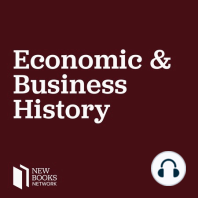39 min listen

Elizabeth Humphrys, "How Labour Built Neoliberalism: Australia's Accord, the Labour Movement and the Neoliberal Project" (Haymarket, 2019)
Elizabeth Humphrys, "How Labour Built Neoliberalism: Australia's Accord, the Labour Movement and the Neoliberal Project" (Haymarket, 2019)
ratings:
Length:
64 minutes
Released:
Aug 9, 2023
Format:
Podcast episode
Description
Why do we always assume it was the New Right that was at the centre of constructing neoliberalism? How might corporatism have advanced neoliberalism? And, more controversially, were the trade unions only victims of neoliberal change, or did they play a more contradictory role? In How Labour Built Neoliberalism: Australia’s Accord, the Labour Movement and the Neoliberal Project (Haymarket 2019), Elizabeth Humphrys examines the role of the Labour Party and trade unions in constructing neoliberalism in Australia, and the implications of this for understanding neoliberalism's global advance. These questions are central to understanding the present condition of the labour movement and its prospects for the future.
Dr Elizabeth Humphrys is a political economist and the Head Of Discipline, Social And Political Sciences at University of Technology Sydney. She is interested in the impact of economic crisis and climate change on workers, and how workplaces can be made safer and more equitable. She takes a multidisciplinary approach, also drawing on sociology and history, to develop policy and strategies for social change.
Learn more about your ad choices. Visit megaphone.fm/adchoices
Dr Elizabeth Humphrys is a political economist and the Head Of Discipline, Social And Political Sciences at University of Technology Sydney. She is interested in the impact of economic crisis and climate change on workers, and how workplaces can be made safer and more equitable. She takes a multidisciplinary approach, also drawing on sociology and history, to develop policy and strategies for social change.
Learn more about your ad choices. Visit megaphone.fm/adchoices
Released:
Aug 9, 2023
Format:
Podcast episode
Titles in the series (100)
Caitlin C. Rosenthal, “Accounting for Slavery: Masters and Management” (Harvard UP, 2018): The familiar narrative of American business development begins in the industrial North, where paternalistic factory owners, committed to a kind of Protestant ethic, scaled up their operations into ‘total institutions’—an effort to forestall labor turno... by New Books in Economic and Business History